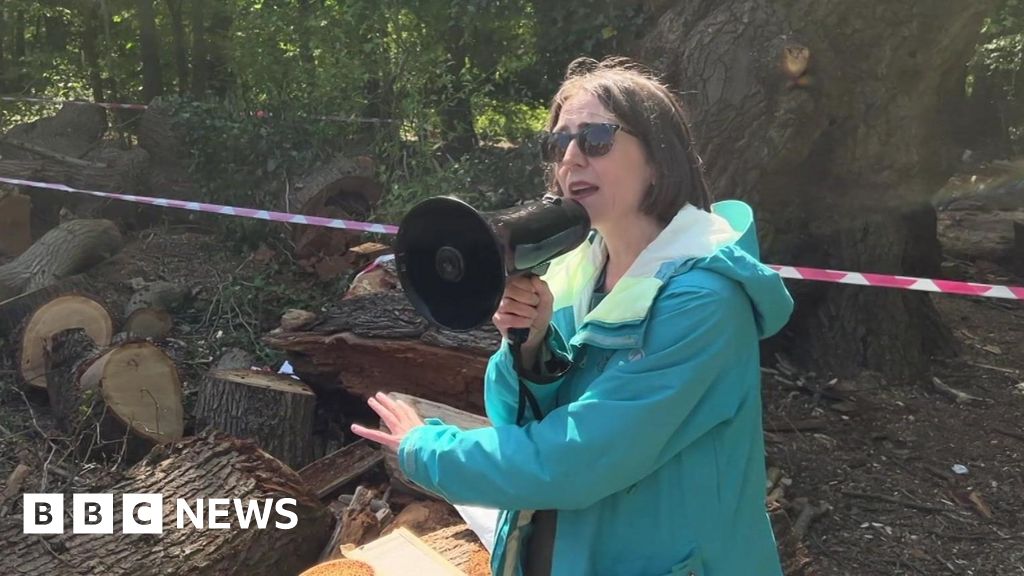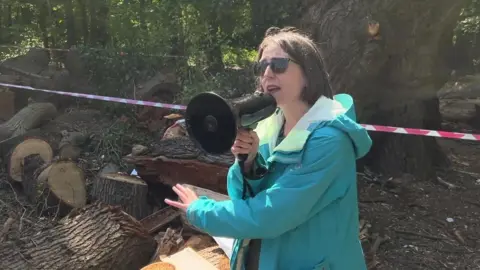 BBC
BBCThere was anger and sadness among people who turned out over the Easter Bank Holiday weekend to protest at the destruction of a tree in Enfield thought to be up to 500 years old.
“This is a crime against nature,” said one campaigner. “It’s a crime against a 500-year-old being.”
Hundreds of people gathered on Sunday to protest the felling of an ancient oak tree in Whitewebbs Park in north London.
The pedunculate oak, which was cut down on 3 April, was located on the edge of an Enfield council-owned park in north London and overlooked the Toby Carvery pub.
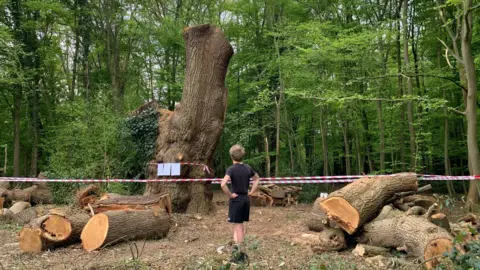 PA Media
PA MediaThe council leased the land on which the tree stood to the Toby Carvery.
The felling of the tree was not discovered by the council until last week.
On Wednesday, Enfield Council’s leader branded the felling “an outrage” and said all legal options were being considered.
Mitchells & Butlers, the owners of the Toby Carvery pub chain, said they cut down the tree after being told it was dead.
In a statement, the company said it had received advice from contractors, who said “the split and dead wood posed a serious health and safety risk”.
They subsequently added in a later statement that it had taken “necessary measures to ensure any legal requirements were met”.
Thousands of people have signed a petition that has asked Enfield Council for an independent investigation into what happened.
Here were some of the reactions over the weekend to the felling of the tree.

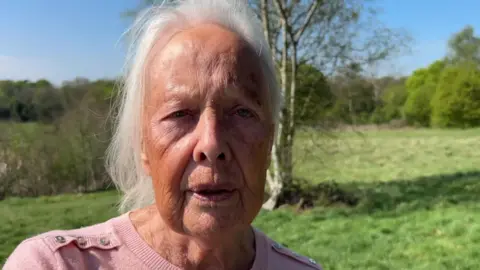
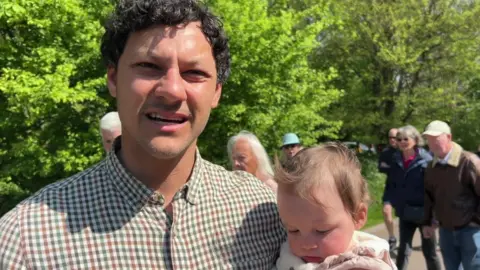
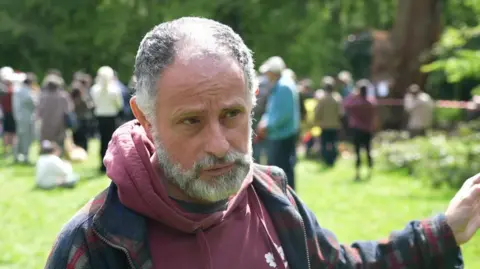
Independent tree consultation Russell Miller told BBC London: “We think this is one of probably less than 100 [trees] in London of this size, so it’s a very significant loss.
“It is possible the tree will shoot, but the chances are the wounds on it are so big it will desiccate, as although the shoots will grow, they will then die because the whole system fails.”
The tree, with a girth of 20ft (6m), was a nationally significant pedunculate oak listed on the Woodland Trust’s ancient tree inventory.
News of the destruction of the oak came just days after a report from the charity Tree Council and environmental group Forest Research warned that trees were only indirectly protected, with some “significant legal gaps”.
